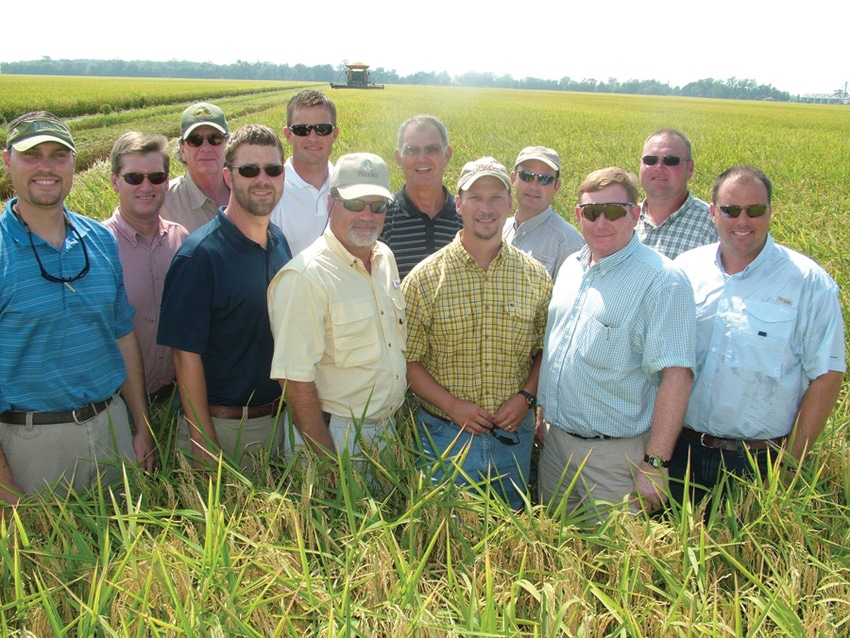
A group of Arkansas rice producers hit the road recently to share management ideas on zero-grade rice, continuous rice, resistant weeds, and water management. But they didn’t want to see “pretty” rice fields. They wanted to see problems and what producers were doing to solve them.
The tour was arranged by Jim Whitaker, who farms around McGehee, Ark., with his brother, Sam. Whitaker frequently arranges such tours to put farmers in touch with other farmers to discuss crop production practices.
“I’ve always tried to find farmers who are doing exceptional jobs in any type of crop, then visit their farms and try to learn,” Whitaker said. “That’s what got us into zero grade rice production 10 to 12 years ago.”
For the tour, Whitaker invites farmers “who are very progressive, who eat, live and breathe rice. We just get together and go on a tour to see things. But I told everybody that I didn’t want to go see another pretty rice field. We wanted to see the problems, what they’re having trouble with, and what they were overcoming.
The touring producers stopped at farms where producers “were pushing past their problems,” Whitaker said. “For two days, we tried to learn what every person on the bus was doing right and what they were doing wrong. Every time we’d see or hear of a problem, we’d talk about it. In continuous rice, we’d talk about water seeding versus no-till.”
The group encountered their share of resistant weeds as well. “You read it every week,” Whitaker said. “They are coming and they’re coming hard. In continuous rice, we’re seeing them faster than anywhere else because we’re putting the same chemistry out there over and over.
“Even though Clearfield-resistant red rice has not been confirmed, we saw some things that were very alarming to us,” Whitaker said. “We know that there are three to four resistant weed species out there, and we talked about the chemicals and strategies to control those.”
To help address some of the issues, the farmers invited Delta Farm Press contributor Ford Baldwin, Brian Ottis with RiceTec, and Ross Wood with RiceCo.
“There was a lot of dialogue on that trip,” said rice consultant Robb Dedman. “Academia and industry asked questions of the farmers. We heard lots of good ideas. The doors were wide open for everybody. A lot of the discussion was on the Clearfield technology, figuring out ways to protect the technology.
“We talked about water, conservation practices. We stopped at George Dunklin’s farm on Five Oaks around Stuttgart, Ark., and saw how he was managing that farm for the ducks. All these guys are interested in conservation and surface water systems, protecting the technologies and increasing yields.”
About the Author(s)
You May Also Like






